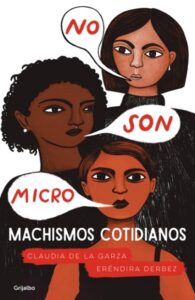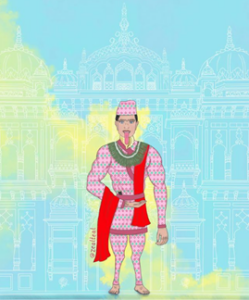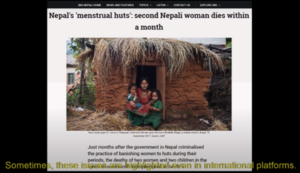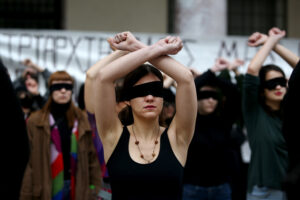Within the context of International Women’s Day and the Commission on the Status of Women (CSW) 68 event, the IDS MA in Gender and Development (MAGAD) 2023 – 2024 cohort has curated a list of informative and inspiring feminist resources.
The MAGAD students recognise the transformative power of art and media in driving change, sparking meaningful conversations and broadening understandings of feminist issues.
Feminist recommendations
Palestinian Feminist Reading List

This book list is curated by Gayatry Sethi and Karla J. Strand with assistance from Susannah Aziz, Susan Muaddi Darraj, and Hannah Moushabeck. This collection features biographies, fiction, nonfiction, poetry, and more. It aims to offer support and visibility to the contributions of Palestinian authors.
Together We Heal: Women, Art and Resistance

In this documentary, directors Fi Gilligan and Briana Barrios explore the impactful work of Mujeres Espejo. The film showcases unique instances of feminist resistance, highlighting women’s efforts in post-conflict Colombia to transcend victimisation, forge brighter futures for themselves, their families and community.
KY33YK by Rebel

‘Rebel’ is a song by a newly formed feminist metal band. The band boldly confronts patriarchal norms, taking a stand for women in Central Asia. What distinguishes them from others in the genre is their defiant and rebellious attitude.
“Who took my innocence, vividness, made me so vigilant, ha? F*****g womanisers. Now… Broke my identity, took my ethnicity, my sense of self? F*****g colonisers. Now”
Strong Girl

‘Strong Girl’ is a collaborative song featuring nine prominent African female musicians, including Waje (Nigeria), Selma Mtukudzi (Zimbabwe), and Victoria Kimani (Kenya). In 2015, the organisation ONE brought the artists together to create an empowering anthem for women. Led by Nigerian artists Waje and Yemi Alade, ‘Strong Girl’ encourages women to recognise their inherent value and strength, regardless of their background or circumstances.
Eréndira Derbez

Eréndira Derbez is an illustrator, teacher, and writer whose work focuses on challenging societal norms. She is active in both academic and artistic circles, with a primary focus on promoting social awareness through her art. Derbez is passionate about feminist issues and has contributed to various projects in Mexico City addressing topics such as breast cancer and femicide. She has also authored books, including ‘No Son Micro. Machismos Cotidianos’ and ‘Mapas Corporales’ (Body Maps).
Do I? by Stuti

‘Do I? A Gender Swapped Wedding’ are illustrations by Stuti which critiques traditional Hindu wedding roles. In Nepal, weddings involve a rigorous family-oriented process, determining compatibility based on factors like caste, astrology, and physical appearance. The popular notion of ‘32 lakshan yukta’ or ‘32 qualities’ expected from women encompasses physical beauty, manners, domestic skills, and obedience. The illustration challenges this by depicting the 32 qualities expected from men, highlighting societal double standards.
Aboriginal women – resistance, resilience and revitalization, Patti Doyle Bedwell

Patty Doyle Bedwell is a lawyer and advocate for Indigenous rights. In this TED Talk, Bedwell shares personal insights about Mi’kmaq women, the impact of Aboriginal Law, and the importance of recognising resistance and activism. The talk explores the historical and ongoing struggles of Mi’kmaq women against racism and sexism, highlighting the various hurdles in the path towards achieving equality.
Understanding Chhaupadi

‘Understanding Chhaupadi’ by Kushal Joshi and Shrinkhala Khatiwada offers a brief overview of Chhaupadi (restrictions that prohibits Hindu women and girls from engaging in daily activities during menstruation). The video shares a glimpse into the world of Chhaupadi, not through the lens of those who adhere to its structures, but rather from the perspective of those who do not.
Annihilation of Caste by Dr B R Ambedkar

Annihilation of Caste is an undelivered speech written in 1936 by Dr B. R. Ambedkar. The speech was to be delivered at an anti-caste convention held in Lahore by Hindu reformers. However, upon reviewing the written speech, the conference organisers deemed it too controversial, and subsequently revoked Ambedkar’s invitation to the conference. Ambedkar proceeded to self-publish the speech, which gained widespread popularity and prompted translations into multiple Indian languages.
Are Prisons Obsolete? by Angela Davis
 In ‘Are Prisons Obsolete?’, Professor Angela Davis illustrates why the time for the prison as an institution is approaching its end. She argues the case for “decarceration,” highlighting its necessity for the feminist, anti-capitalist transformation of society as a whole.
In ‘Are Prisons Obsolete?’, Professor Angela Davis illustrates why the time for the prison as an institution is approaching its end. She argues the case for “decarceration,” highlighting its necessity for the feminist, anti-capitalist transformation of society as a whole.
El Violador Eres Tú

Translated as ‘The Rapist is You’ is a feminist anthem that originated in Chile in November 2019. It was created and performed by a feminist collective called LasTesis. The lyrics of the song condemn the patriarchy, institutionalised violence against women, and the complicity of the State and society in perpetuating rape culture. The song challenges victim-blaming narratives and puts the responsibility on perpetrators of sexual violence, declaring, “Y la culpa no era mía, ni dónde estaba, ni cómo vestía” (“And the fault was not mine, nor where I was, nor how I dressed”).